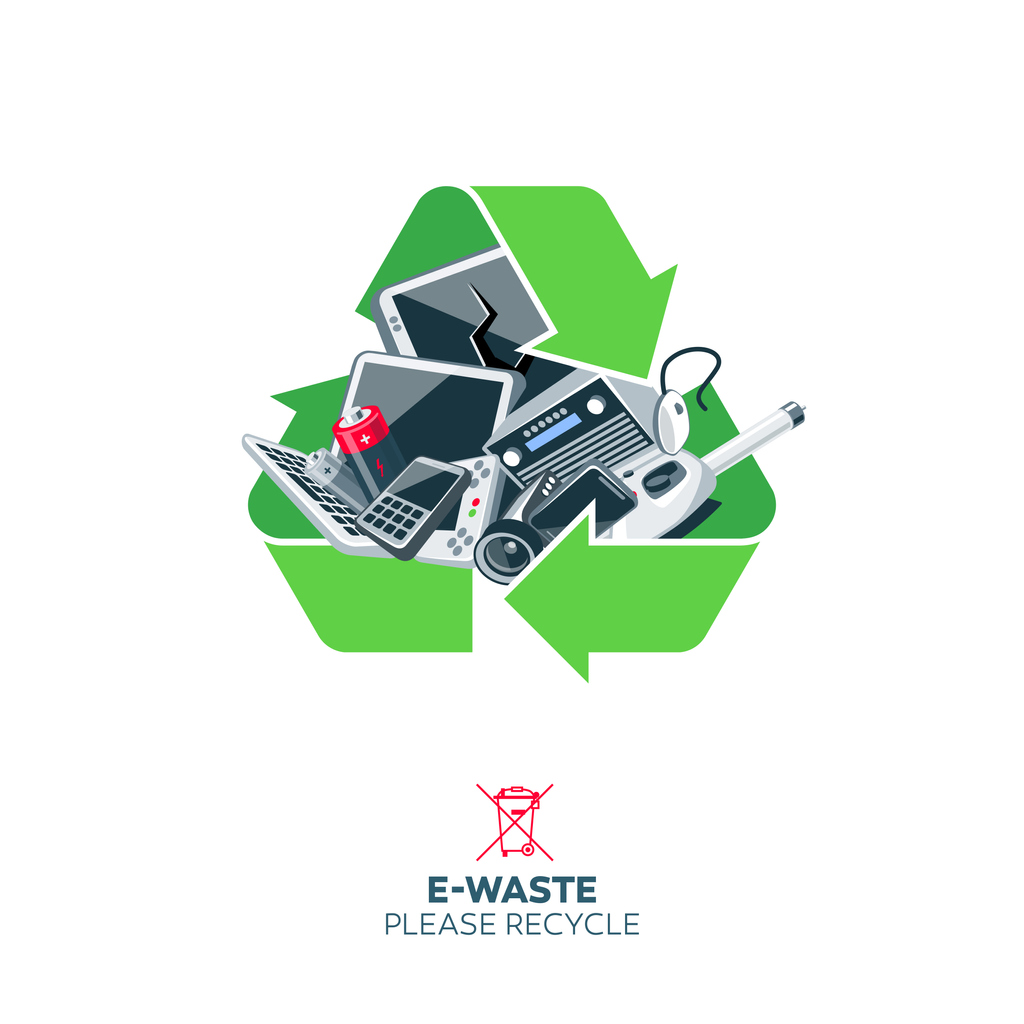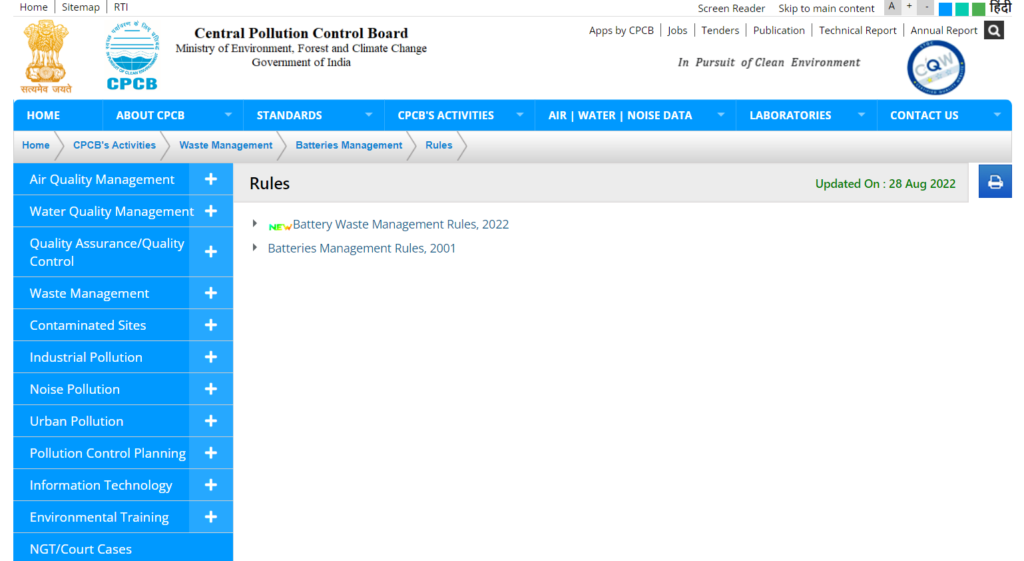Table of Contents
The Imperative for E-Battery Recycling Policies
Undoubtedly, the EV revolution is here, bringing the promise of quieter transportation, less reliance on fossil fuels, and cleaner air. But one important component-sustainable e-battery recycling-will determine whether or not this change occurs. The issue of discarded batteries presents a significant danger to resource security and environmental health as the electric vehicle (EV) market grows quickly. Here is where government policies shape and influence appropriate e-battery recycling programs.
The Significance of E-battery Recycling
Packed with essential elements like nickel, cobalt, and lithium, E-batteries are far from harmless trash. There are major consequences for improper disposal. Hazardous element leaks have the potential to contaminate water and soil sources, affecting ecosystems and endangering human health. Furthermore, there are few answers found in landfills because these precious resources still need to be recovered, which makes it harder to create a circular economy and increases reliance on mining activities that harm the environment.

Government Initiatives and Regulations in India
Understanding the urgency of e-waste and possible environmental risks, the Indian government has launched many proactive initiatives to encourage appropriate recycling and create a strong e-waste ecosystem. These programs demonstrate a strong dedication to resource conservation and sustainability.
1. Battery Waste Management Rules, 2022: EPR Takes Center Stage
India’s attempts to recycle e-batteries are centered around the Battery Waste Management Rules, 2022. The idea of Extended Producer Responsibility (EPR), which holds importers and manufacturers responsible for the end-of-life handling of batteries they make or release onto the market, was first presented by this landmark policy.
Under EPR, producers must collect and recycle a specific percentage of their batteries. The regulations immediately set high goals, requiring a 70% recycling rate for batteries used in e-rickshaws by 2024–2025. It establishes a significant precedent and encourages manufacturers to spend money on effective recycling infrastructure.
The Centralized Producer Responsibility Portal, a simplified web-based tool for tracking and monitoring EPR compliance, is also established by the BWM Rules. It ensures responsibility and openness at every stage of an electric battery’s lifecycle, from manufacture to recycling.
2. CPCB EPR Registration: Ensuring Transparency and Compliance
The government has mandated that all parties participating in the e-battery cycle register on the Centralized Producer Responsibility Portal to expedite the effective implementation of the BWM Rules. This includes:
- Manufacturers and importers must record details of the batteries they bring to market and their recycling strategies.
- To ensure proper handling and treatment of e-batteries, authorized recycling and refurbishing facilities must register their operations and capability.
The government can trace the movement of e-batteries and monitor compliance with EPR requirements thanks to this centralized registration system, which promotes accountability and transparency. Customers are also better equipped to choose brands with e-waste management policies that have been proven to be responsible when making purchases of gadgets, thanks to this transparency.
3. Old Battery Exchange Programs: Encouraging Responsible Disposal
The government is actively investigating the adoption of old battery exchange programs to encourage the responsible disposal of e-batteries. Customers who participate in these schemes can exchange their used batteries for savings on new ones. Thus making it possible for anyone to join the chain of e-battery recycling practically and profitably.
Several ways exist to implement old battery exchange programs, including mobile collection units, collaborations with shops, and special collection locations. These schemes can divert e-batteries from landfills and greatly enhance recycling rates by making responsible disposal rewarding and convenient.

Credit: CPCB
4. Setting Up Authorized Recycling Facilities: Maximizing Resource Recovery
The BWM Regulations further stress the importance of having an authorized recycling facility network across India. These facilities recover valuable materials from used e-batteries using advanced methods like hydrometallurgical or pyrometallurgical processes.
Important components like nickel, cobalt, and lithium can be recovered using these techniques and utilized again to make new batteries. This process not only lessens the damage that mining for virgin minerals has to the environment, but it also encourages the circular economy for essential resources.
Thus, India is laying the groundwork for a sustainable future for the electric vehicle (EV) industry and a cleaner environment by investing in advanced recycling technologies, creating a strong regulatory framework, and offering incentives for responsible disposal.
International Collaboration
India actively participates in international programs promoting information exchange and cooperative solutions to the e-battery dilemma, such as the International Solar Alliance and the International Renewable Energy Agency (IRENA) Coalition of Action on E-waste Management. Ensuring proper treatment of e-waste throughout its lifecycle requires a unified worldwide approach.

Economic Incentives and Investment
The government is considering using financial incentives to support the recycling sector, such as tax breaks for producers who meet their EPR commitments and subsidies for establishing recycling facilities. Such actions will draw capital, provide employment, and accelerate the development of a sustainable e-battery recycling industry.
Technological Advancements and Research
Understanding the necessity for ongoing technological advancement, the government actively funds projects to improve e-battery recycling techniques. Programs such as the Technology Innovation Hub (TIH) concentrate on creating domestically produced methods for effective and environmentally sustainable recycling operations.
Success Stories: Inspiration in Action
South Korea is a prime example of how effective government initiatives can be. The nation has a recycling rate of over 90% thanks to extensive infrastructure and mandated collection operations. Similarly, research and development into sustainable recycling solutions is funded by Norway’s “Battery Fund,” fueled by government charges on battery sales. These tales provide motivational models for other countries to adopt.
Conclusion
One cannot emphasise how important government measures are in promoting e-battery recycling. From setting regulations and providing financial incentives to funding research and promoting international cooperation, governments are the key to opening the door to an EV-friendly future. But we need to work together to complete this adventure.
Join Renovar in our mission for a greener tomorrow! Embrace sustainable living by recycling your batteries with us. Together, let’s support government initiatives and create an EV-friendly future. Contact us today!
FAQ
Why is E-Battery Recycling Important?
E-battery recycling prevents environmental harm, recovers resources, and supports sustainability in the EV industry.
What is Extended Producer Responsibility (EPR) in Battery Recycling?
EPR holds importers and manufacturers accountable for collecting and recycling a specified percentage of released batteries.
How Does CPCB EPR Registration Ensure Transparency?
CPCB EPR Registration ensures transparency by tracing e-battery movement, monitoring compliance, and empowering informed customer choices.
What are Old Battery Exchange Programs?
Old battery exchange programs incentivize responsible disposal by letting customers exchange used batteries for new ones at a discount.
How is India Promoting International Collaboration for E-Battery Recycling?
India collaborates internationally to address e-battery recycling issues, promoting global information exchange and cooperative solutions.


